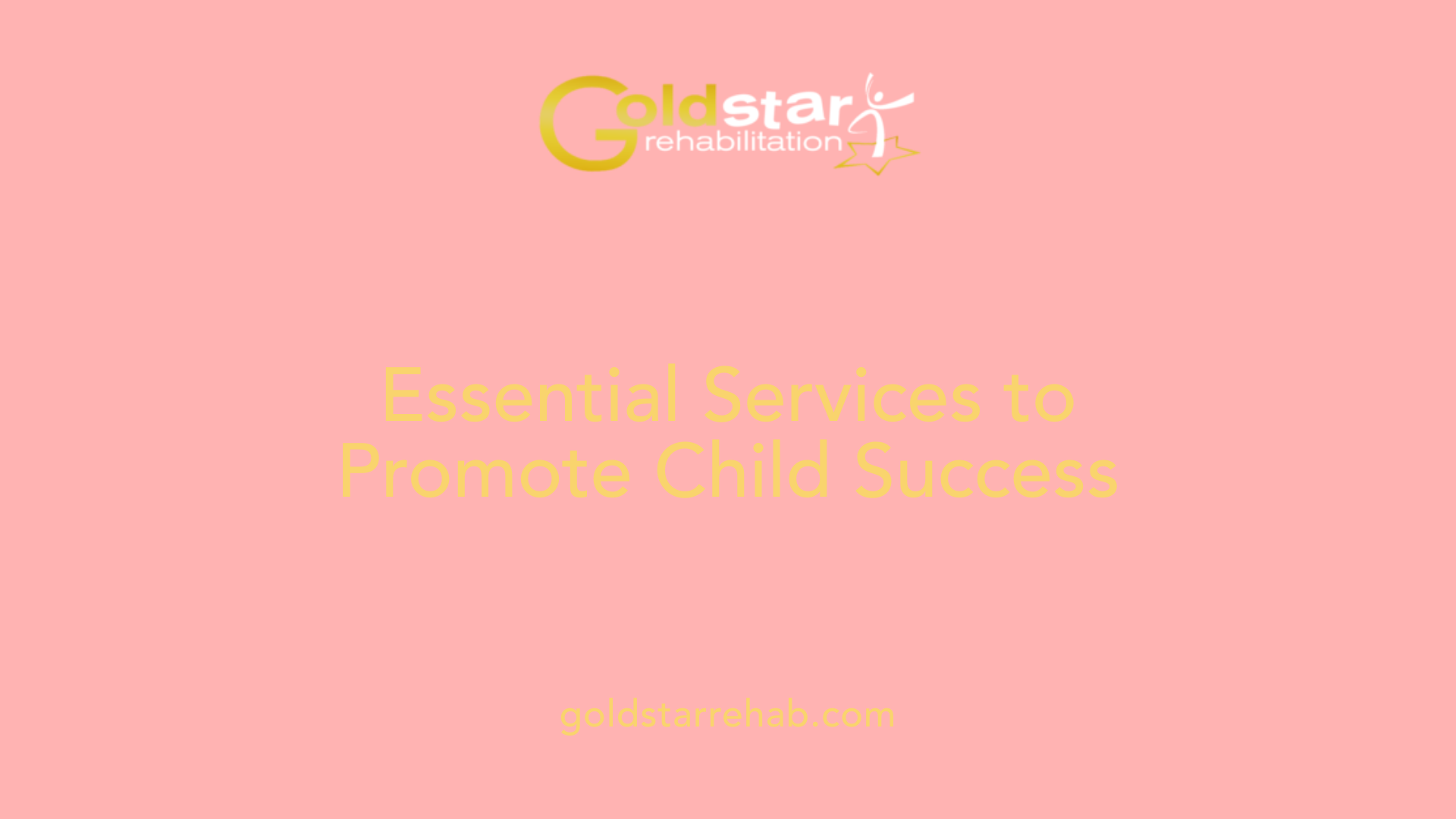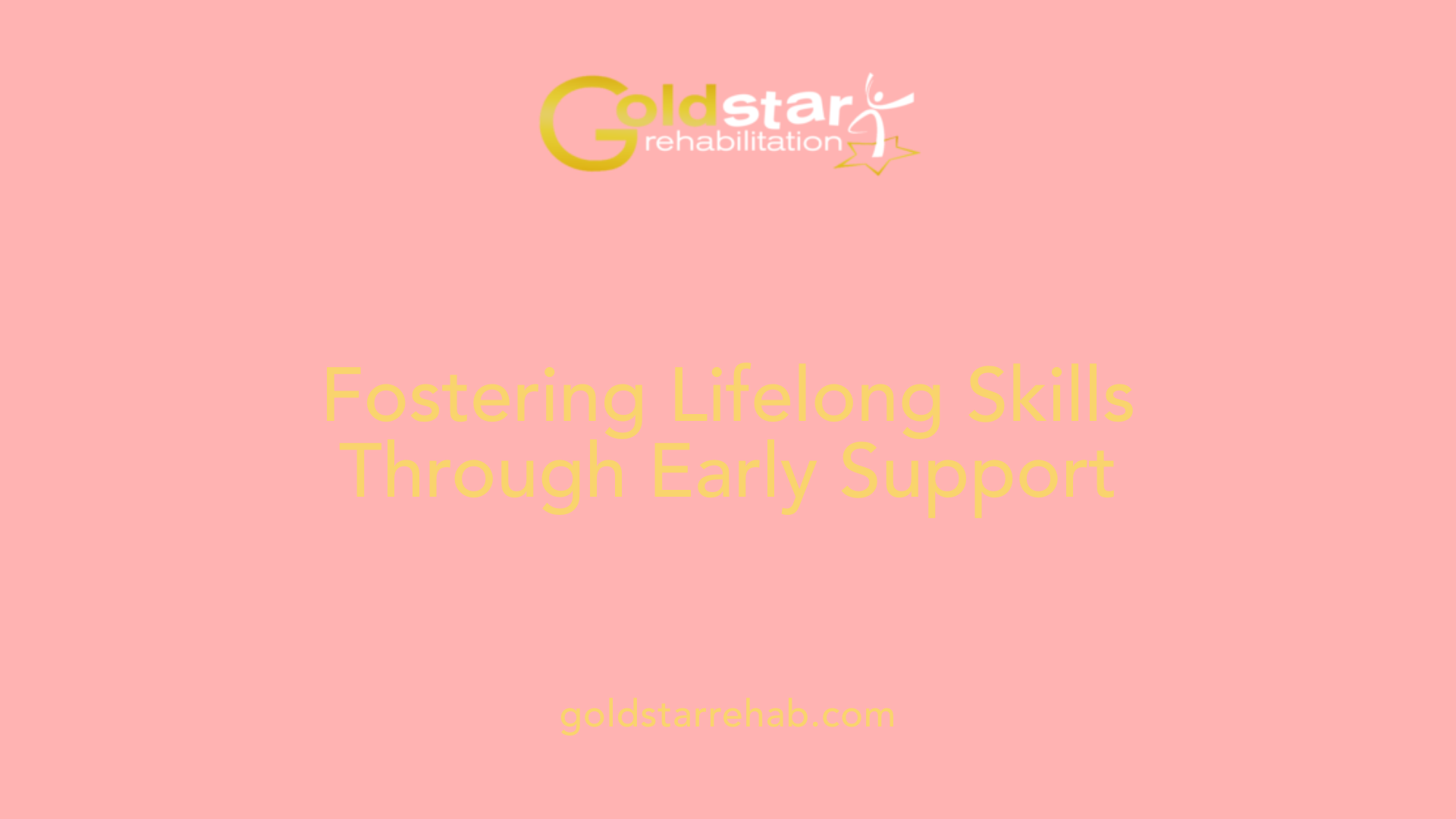How Early Intervention Helps Prepare Children for Social Interaction in School
Building Foundations for Lifelong Social Success
Table of Contents
Understanding the Critical Role of Early Intervention in Social Development
Early intervention in childhood is a pivotal process that sets the stage for effective social interaction and academic achievement in school. Recognized globally as a vital approach, early intervention focuses on identifying developmental delays and providing targeted support during the formative years. This article explores how early intervention programs, such as The Incredible Years, foster social and communication skills, support emotional well-being, and prepare children for successful integration into the school environment.
The Scope and Components of Early Intervention Programs

What are the benefits of early intervention for children?
Early intervention provides a foundation for lifelong development by addressing social, emotional, communication, cognitive, and physical needs in young children. During the critical period from birth to about three years old, these programs help children meet vital milestones, develop essential skills, and ease their transition into formal education. This proactive approach can reduce the need for future special education services and foster a positive outlook on learning.
Family-centered and culturally sensitive, early intervention actively involves parents and caregivers, respecting their preferences while offering tailored services in familiar settings like homes and daycares. Such natural environments support children in applying new skills daily, making learning more relevant and effective.
Beyond developmental gains, early intervention enhances children's happiness and health, boosts self-esteem, and empowers families with guidance and confidence. In turn, children benefit from increased opportunities for success and well-being, laying a sturdy groundwork for future education and life skills.
How do early childhood education programs support children's social development?
Quality early childhood education fosters social growth by creating safe, nurturing spaces that promote positive interactions. Through engaging activities such as free play, storytelling, and group projects, children learn cooperation, negotiation, empathy, and conflict resolution.
Teachers model respectful and inclusive behavior, nurturing emotional intelligence and teaching children to express feelings constructively. Establishing routines and social norms, these programs help children develop independence and cooperation.
Children also practice social skills in supportive environments, helping them build friendships and navigate relationships confidently. Overall, early childhood education provides a solid base for emotional well-being and success in future social settings.
What are the developmental impacts of early intervention on communication and social skills?
Research consistently shows that early intervention significantly improves communication and social skills, both crucial for readiness to learn. Programs like The Incredible Years focus on enhancing social competence through strategies such as parent-mediated learning, modeling, and structured social interactions.
Addressing delays in language development, especially in understanding oral language, reading, and writing, helps prevent future learning difficulties. Early treatment for children with autism or developmental delays often emphasizes joint attention and social reciprocity, fostering better engagement with peers and adults.
Such targeted support not only supports smoother classroom integration but also builds confidence, which encourages ongoing social participation and emotional resilience.
How do interventions improve social and emotional skills essential for school success?
Interventions like The Incredible Years are designed to strengthen emotional regulation, relationship-building, and conflict management. These programs utilize evidence-based techniques—such as modeling, praise, and visual prompts—to teach children healthier ways to express feelings and interact.
Family involvement is a crucial aspect, ensuring skills are reinforced consistently at home and school. This coordination promotes resilience and empathy, enabling children to handle peer interactions effectively.
As children gain emotional and social competence, they become more confident and adaptable, making their transition into school environments smoother and more successful.
In what ways do teacher and parent collaborations enhance social skill development?
Collaboration between teachers and parents creates a cohesive support system that reinforces social skills. When both parties utilize aligned strategies—like consistent praise, reinforcement, and behavior management—children internalize appropriate behaviors more effectively.
Programs such as The Incredible Years promote parallel training, ensuring that parents and teachers respond similarly to children’s social and emotional needs. Open communication and shared goals foster trust, making it easier for children to transfer skills across settings.
This joint approach enhances social competence, peer relationships, and emotional resilience, ultimately supporting better academic and social outcomes.
What evidence supports the effectiveness of early intervention in fostering social integration?
Long-term research indicates that children who receive early intervention demonstrate higher academic achievement, increased graduation rates, and fewer behavioral issues. Social communication programs, especially for children at risk of autism, show improvements in social reciprocity, engagement, and emotional regulation.
These benefits extend beyond individual children, impacting entire classrooms and communities by promoting inclusive practices, reducing conflict, and fostering positive social behaviors from an early age.
Consistently, studies underscore that early support helps children develop a sense of belonging and social competence, reducing future challenges in school and society.
How does early intervention support long-term success and independence?
Investing in early intervention sets children on a path toward independence, higher educational attainment, and meaningful employment. Early support helps children develop critical skills such as language, self-care, emotional resilience, and social understanding.
Research reveals that individuals who received early help tend to earn higher incomes, experience greater self-sufficiency, and enjoy better mental health as adults. Emotional resilience and stress management are bolstered, easing the transition into adulthood.
In essence, early intervention acts as a lifelong investment—empowering children to thrive academically, socially, and economically, fostering independence and well-being across their lifespan.
Program ComponentsDescriptionFocus AreaSpeech therapySupports language acquisition and speech clarityCommunication SkillsOccupational therapyDevelops fine motor skills, sensory integration, and independencePhysical & Self-Care SkillsBehavioral therapyAddresses social-emotional challenges and behavioral issuesSocial & Emotional SkillsFamily supportOffers education, strategies, and emotional support to familiesFamily EngagementParent-mediated learningTraining parents to promote social communication and behavior at homeHome EnvironmentInclusive practicesEnsures individualized services considering societal barriersAccessibility & Equity
This overview highlights how early intervention programs integrate diverse services to promote comprehensive developmental growth, emphasizing their importance for lifelong success.
Building Social, Emotional, and Behavioral Competence in Early Childhood

Why is social-emotional learning (SEL) important in early childhood?
Social-emotional learning (SEL) forms the foundation for children's overall development, including their ability to navigate relationships, manage emotions, and develop resilience. In early childhood, fostering SEL helps children achieve academic success and social competence, which are crucial for their long-term well-being. Programs like The Incredible Years focus specifically on nurturing these skills through evidence-based methods, ultimately supporting children in building confidence, emotional regulation, and positive social interactions.
How can early intervention programs help children develop social skills and emotional regulation?
Early intervention programs utilize a variety of techniques tailored to the developmental needs of young children. These include parent-mediated learning, where parents are supported and trained to promote social communication during everyday activities. Structured activities such as role-playing, group work, and model behaviors help children learn sharing, taking turns, and resolving conflicts.
Visual prompts, praise, and positive reinforcement are also common strategies employed to encourage desired behaviors. Additionally, collaborative approaches involving both parents and teachers ensure consistent responses and reinforce social-emotional skills across different environments. These strategies aim to make learning engaging, practical, and applicable in real-life situations, thereby enhancing social skills and emotional regulation.
What evidence-based programs support early childhood social and emotional development?
One prominent example is The Incredible Years, a comprehensive program designed to improve social, emotional, and behavioral skills in children aged preschool through school age. It provides specific curricula for different age groups, incorporating visual prompts, modeling, and praise to promote positive behavior.
Another innovative approach is Building Interactive Social Communication (BISC), which builds on previous research by supporting community practitioners in facilitating parent learning to improve social engagement, especially for children at risk for autism. Pilot studies of BISC have shown significant improvements in social reciprocity, behavior, and engagement.
These programs emphasize collaboration between parents and educators, creating a cohesive environment where strategies are reinforced consistently. As a result, children develop better emotional understanding, social interaction, and readiness for school.
How do early intervention techniques prepare children for school?
Early intervention plays a critical role in easing the transition into formal schooling by helping children develop key social and communication skills. Children learn to follow routines, express themselves, and interact positively with peers—skills essential for classroom success.
Programs also focus on building emotional resilience, so children can handle the stresses of new environments. Family involvement ensures that children receive consistent support both at home and school, boosting their confidence.
Early diagnosis and targeted strategies for those with developmental delays ensure that children enter school ready to learn, reducing behavioral issues and facilitating smoother adaptations.
Supporting data and examples
Intervention TypeMain FocusOutcomesMethods UsedThe Incredible YearsSocial-emotional and behavioral skillsImproved social interactions, emotional regulationVisual prompts, modeling, positive reinforcement, parent trainingBuilding Interactive Social Communication (BISC)Social engagement, communication skillsIncreased social reciprocity, reduced behavioral issuesParent-mediated learning, community practitioner trainingFamily and school collaborationConsistent reinforcement of skillsBetter adjustment, social competence, and school readinessParent-teacher coordination, home and classroom strategies
How do programs like The Incredible Years involve parents and teachers?
Programs such as The Incredible Years facilitate partnerships between parents and teachers by providing training and resources focused on consistent, positive strategies. Both groups learn to use visual cues, praise, and structured activities that promote social and emotional skills.
Parallel training ensures that adults respond to children's needs using aligned techniques, reinforcing what children learn at home and in school. This collaborative approach boosts children's learning and behavior by creating a unified support system.
Final thoughts
Early intervention is a proactive approach that significantly impacts children’s future social, emotional, and academic outcomes. By implementing evidence-based strategies and fostering collaboration among parents, teachers, and community providers, children gain essential skills that set the foundation for lifelong success.
The Lifelong Impact of Early Social and Communication Skills Development
What is the developmental impact of early intervention on children's social interactions and communication abilities?
Early intervention plays a crucial role in shaping children's social and communication skills, which are foundational for later success in life. When interventions target key areas like joint attention, emotional regulation, and language development, children begin to navigate social situations more effectively. These skills enable children to form meaningful relationships, express their needs, and participate in learning environments with confidence.
The immediate benefits include improved social competence and communication skills, which translate into better interactions with peers and adults. Over time, these early gains influence long-term outcomes such as academic achievement and mental health. Children who develop strong social skills early on tend to adapt more easily, demonstrate resilience in challenging situations, and experience lower levels of anxiety and behavioral issues as they grow.
Furthermore, children with early support in communication often show higher levels of independence and social integration. They are better equipped to handle social dynamics and build supportive relationships, which are vital for personal growth and societal participation. This lifelong development underscores the importance of early intervention programs that emphasize social communication, especially for children at risk of developmental delays or autism.
Fostering a Supportive Environment for Lifelong Development
In sum, early intervention programs are instrumental in laying the foundation for children’s social, emotional, and communication skills, which are critical for thriving in school and beyond. By addressing developmental delays early and involving families in tailored, evidence-based strategies, these programs significantly enhance children’s readiness for social interaction and academic success. Long-term research supports the ongoing benefits of early intervention, highlighting its role in fostering resilient, competent, and independent individuals. As educators, caregivers, and policymakers continue to prioritize early childhood development, the collective effort will ensure every child has the opportunity to reach their full potential and lead a successful, connected life.
.png)








%20(1).jpg)




.jpg)





.jpg)

.jpg)











